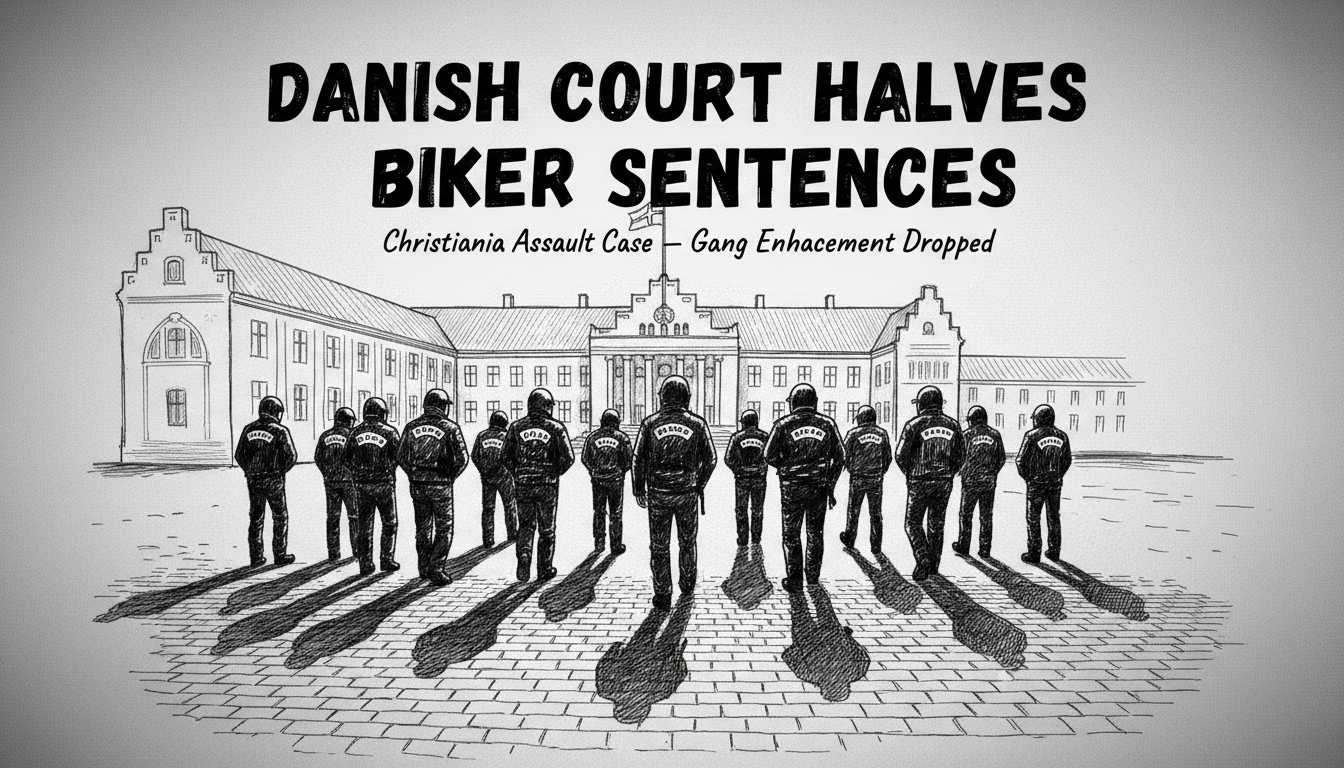A Copenhagen appeals court has dramatically reduced prison sentences for sixteen bikers convicted of a brutal group assault in Christiania. The Eastern High Court cut punishments nearly in half compared to the city court's original ruling. Several defendants received nine-month or one-year sentences instead of the initial two-year terms. This case reveals much about Denmark's ongoing struggle with organized crime and its complex integration challenges.
The court removed a critical gang-related charge that typically doubles penalties under Danish law. Prosecutors had argued the Comanches motorcycle group targeted a Hells Angels-controlled cannabis stall in the famous freetown. The appellate judges found insufficient evidence that the assault would trigger an armed conflict between rival gangs. Legal experts note this decision could impact future gang violence prosecutions across Danish municipalities.
Only two of the sixteen convicted men appeared for Thursday's sentencing. Defense lawyers expressed clear satisfaction as they left the courtroom. Their clients also avoided bans from the Comanches clubhouse in Brøndby. The reduction follows Denmark's ongoing debate about integration policy and gang violence prevention. Copenhagen social centers have struggled with how to address organized crime's roots in marginalized communities.
The April attack involved multiple cars transporting Comanches members from their Brøndby headquarters to Christiania. They targeted an employee at the Hells Angels-operated "Bedst og Billigst" cannabis stall. Witnesses described a thirty-second beating where the victim was repeatedly kicked while lying defenseless on the ground. The appeals court disagreed with the lower court's finding about knife involvement.
One defendant received notably different treatment. Lasse Christensen received a three-year sentence due to his criminal history. He had previously been convicted for a murder near Christiania while affiliated with Hells Angels. The court reinstated part of his remaining sentence from that earlier case. Still, he benefited from the overall sentencing reduction trend in this appeal.
Another defendant, thirty-year-old Semih Muzaffer Köse, received a combined two-year sentence accounting for previous convictions. The case originated during Christiania's period of extensive cannabis trade operations. Danish authorities have since cleared the Pusher Street market as part of broader social policy initiatives. These efforts aim to reduce gang influence while supporting community integration.
Copenhagen integration specialists note such cases highlight the complex relationship between organized crime and social exclusion. Denmark's welfare system faces ongoing challenges addressing root causes of gang recruitment. The sentencing reduction raises questions about legal consistency in gang-related prosecutions. Community leaders await the long-term impact on Copenhagen's ongoing efforts to combat organized crime through both legal and social policy measures.

